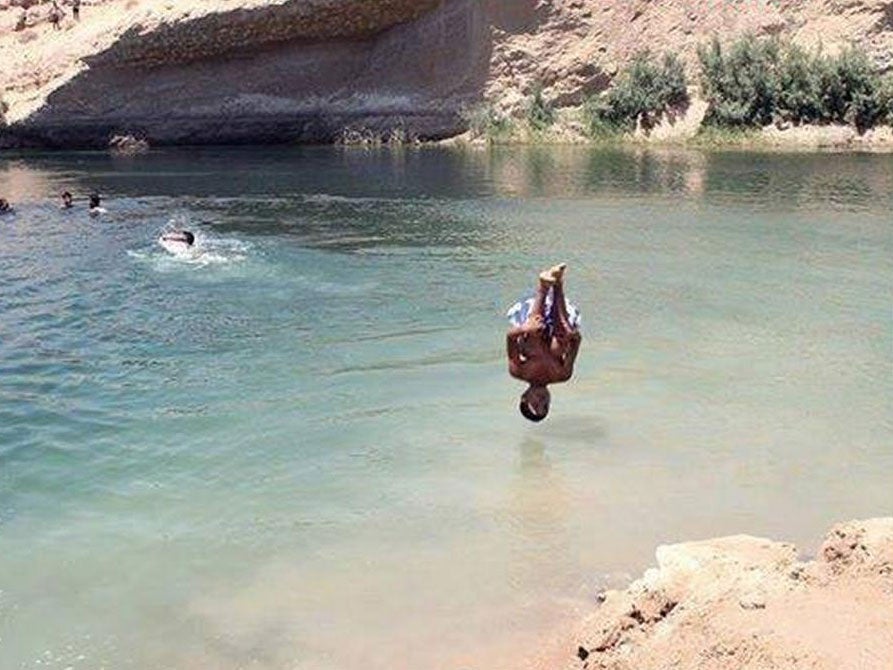Mystery as 'lake' appears in middle of Tunisian desert and becomes overnight tourist attraction
Authorities have warned the water could be radioactive and cause cancer

Your support helps us to tell the story
From reproductive rights to climate change to Big Tech, The Independent is on the ground when the story is developing. Whether it's investigating the financials of Elon Musk's pro-Trump PAC or producing our latest documentary, 'The A Word', which shines a light on the American women fighting for reproductive rights, we know how important it is to parse out the facts from the messaging.
At such a critical moment in US history, we need reporters on the ground. Your donation allows us to keep sending journalists to speak to both sides of the story.
The Independent is trusted by Americans across the entire political spectrum. And unlike many other quality news outlets, we choose not to lock Americans out of our reporting and analysis with paywalls. We believe quality journalism should be available to everyone, paid for by those who can afford it.
Your support makes all the difference.A mysterious lake that appeared suddenly in the Tunisian desert has created an impromptu “beach” in the drought-ridden country.
No explanation has been given for the sudden appearance of “Gafsa Beach”, which was discovered by shepherds three weeks ago.
Authorities have warned that the water, which started off a crystalline blue and has since turned a murky green with algae, could be carcinogenic but Tunisians have not been able to resist cooling off in the 40C heat.
More than 600 people are believed to have flocked to the pool, locally dubbed “Lac de Gafsa”, where they have paddled, scuba dived, launched themselves off rocks and relaxed on lilos.
“Some say that it is a miracle, while others are calling it a curse,” journalist Lakhdar Souid told France 24.
There has been no official explanation for the lake's origins and while some geologists believe seismic activity may have caused groundwater to rise to the surface by disrupting the water table, others disagree.
According to local authorities, the volume of the pool could be one million cubic metres over more than one hectare, with a depth of between 10 and 18 metres.
No official ban on swimming has been put in place but Gafsa's Office of Public Safety warned Tunisians that the water may be contaminated or even radioactive.
“This lake is located in an area rich in phosphate deposits, which leave residue that is sometimes strongly radioactive,” Mr Souid wrote in Tunisia Daily.
“So there is a real risk the water is contaminated and carcinogenic.
“In the first few days, the water was a crystal clear, turquoise blue. Now it is green and full of algae.
“This means it is not being replenished and is conducive to disease.”
The Gafsa region of central Tunisia is home to the country’s mining industry and phosphate was first discovered in 1886.
Tunisia is the world’s fifth largest exporter of the chemical, used in agriculture and industry, and the Gafsa is home to one of the largest phosphate mines.
Join our commenting forum
Join thought-provoking conversations, follow other Independent readers and see their replies
Comments